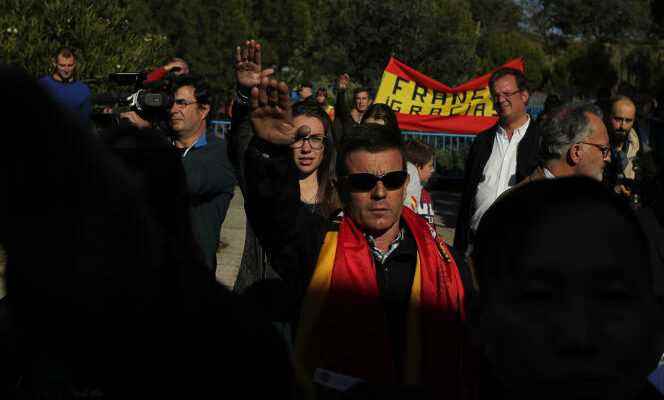In October 2019, Spain transferred Francisco Franco’s coffin from his mausoleum in Valle de los Caídos (“the valley of the fallen”), a huge basilica built to his glory by thousands of political prisoners and containing the bones of more than 33,000 victims from both sides of the Civil War, to a small municipal cemetery. “The public tribute to the dictator was more than an anachronism or an anomaly, it was an affront to Spanish democracy,” declared then the head of the executive, the socialist Pedro Sanchez, determined to heal the wounds of the kingdom inherited from forty years of dictatorship. Far from stopping there, three years later, the Spanish government continues to make progress in the policy of restoring the memory of the victims of the civil war (1936-1939) and of the dictatorship.
After a narrow vote – 166 votes for, 153 against and 14 abstentions – marked by lively controversies, the Spanish Parliament approved, on Thursday July 14, the new “democratic memory” bill, a new memorial law toughening the condemnation of the Francoism. After a final passage in the Senate, it will replace the “historical memory” law, approved in 2007 by the socialist government of José Luis Rodriguez Zapatero, by filling in certain gaps.
While the 2007 law declared “illegitimate” the Franco courts, the new text proclaims the regime established by Franco ” illegal “ and revokes all the sentences dictated by its courts for political or conscience offences. Making the State responsible for the search, identification and exhumation of the remains of the disappeared from the civil war and the dictatorship, it provides for the creation of a list of victims, a national map of mass graves or a centralized DNA bank and the development of multi-year plans to accelerate the opening of mass graves.
Far from having reached a consensus
The law publicly recognizes the role of women in the fight against Francoism, the ” repression “ Catalan, Basque and Galician regional languages and the “right to the truth” Republican victims. It eliminates thirty-three noble titles granted between 1948 and 1978 by the dictator to the regime’s closest collaborators, starting with the “Duchy of Franco”, penalizes the exaltation of Francoism, and modify the Official Secrets Act to guarantee access to state archives. It also imposes the study of Franco’s repression in school curricula.
You have 57.66% of this article left to read. The following is for subscribers only.
